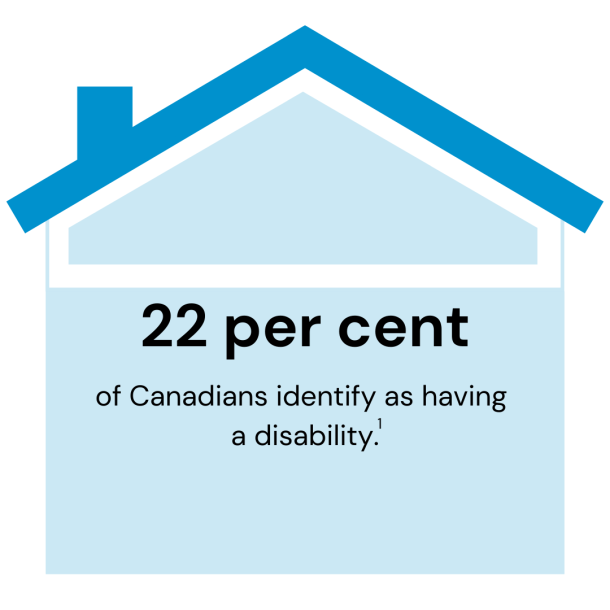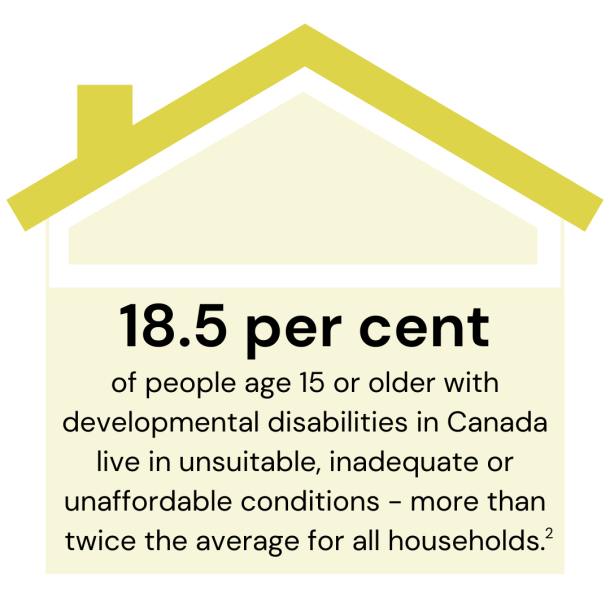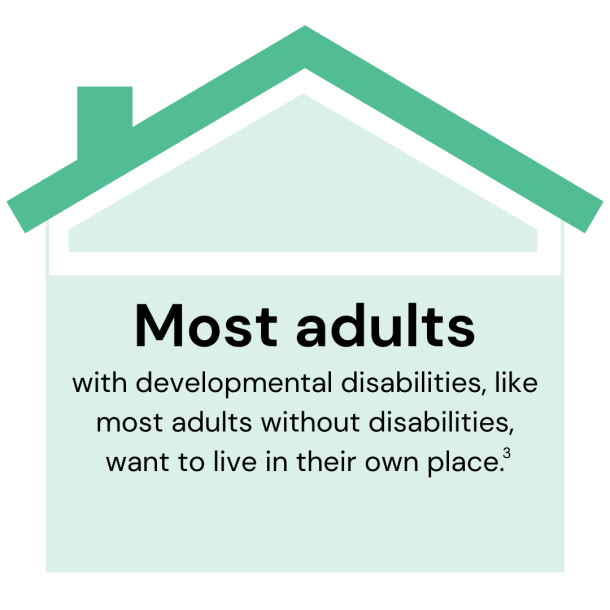Be an inclusive landlord
Building a stronger community through inclusive housing
Becoming an inclusive landlord is the right choice for you, your tenants, and your community.
As a landlord who rents to people with disabilities and families supported by Community Living Huntsville, you will find tenants with the income and support to promote stable, long-term tenancies. Plus, you will provide people and families with the stability everyone needs to build their lives and fully participate in the social and economic life of their community.



People with disabilities and families that we support want the same housing choices as everyone else. Barriers to home ownership mean many rely on rental apartments and houses. But harmful misconceptions about people with disabilities often see them dismissed as rental candidates.
You can help us change that.
People with disabilities contribute to their communities as neighbours, friends, volunteers, employees, business owners, customers, patrons, members, and leaders. Plus, people and families supported by Community Living Huntsville have access to our knowledgeable and professional team members, who can support them to build skills, find and maintain employment, access resources, set and achieve their goals, and grow community connections.
As an inclusive landlord, you will have access to our team members, too. Our team can support stable tenancies, answer your questions, facilitate timely and consistent rent payments, and act as a liaison for you and your tenants to ensure everyone’s needs are met.
What a landlord has to say
"I first became aware of the work of Community Living over 25 years ago when I rented an apartment to an individual who received their support. Early in my relationship with Community Living I was able to see firsthand the amount of support they provide individuals and the efforts the staff go through to work to resolve any issue to the satisfaction of all involved. The professional staff totally sold me on their commitment and dedication to improving the lives of developmentally disabled individuals and made me feel like I want to be a part of this team. From the perspective of someone who has rented many units to Community Living, you will not find a better tenant complete with professional support staff to assist the individuals and work with the landlord to resolve issues."
– Stephen Hernen, Property Owner, Huntsville
For people with disabilities to live as equally valued and equally thriving community members, they need access to one of the most basic human rights – housing. You can help build a stronger community by becoming an inclusive landlord.
We want to work with you. Contact us with questions or for more information.
Where to Start
Let’s talk about how we can support you in opening doors to inclusive housing in our community:
Diane Lupton
Diane.Lupton@clhuntsville.ca
705-789-4543, Ext. 226
Frequently Asked Questions
What is a developmental disability?
There are many kinds of developmental disabilities. Examples include autism, Down syndrome, intellectual disability, and cerebral palsy. A developmental disability can affect cognitive function, intellectual development, physical function, or communication. People with developmental disabilities, and their families, have historically faced, and continue to face, discrimination through no fault of their own. A person’s disability is only one part of them, and every person has their own abilities, interests, and goals.
Why does our community need inclusive landlords?
Competition for rental apartments in North Muskoka is fierce. Listed apartments can receive more than 300 inquiries. Many aren’t listed. It makes it easy for applicants with disabilities to get overlooked or dismissed, especially when systemic barriers like the Ontario Rental Application are stacked against them.
We need landlords in our community to think of people with disabilities and families we support as viable candidates and tenants. Homelessness is a real threat – and a stark reality – for many people and families because they are overlooked in the application process. With the support of inclusive landlords, people and families will have equal opportunity to live in secure homes and fully participate in their communities.
What sources of income may a tenant with a developmental disability have to pay for rent?
It’s time to bust a myth! People with disabilities often have the same main source of income as people without disabilities – employment income. The number of people with disabilities who have access to employment income is on the rise, too, as employers become more inclusive as well.
Plus, people and families we support have our team members, who can help them access additional resources, like the District of Muskoka’s rent supplement.
And our team can work with you to set up direct deposit rent payments. That means peace of mind for both you and your tenants.
Will there be support staff at the apartment all the time?
No. While everyone’s needs are different, our goal is the same: to support people to build their skills, confidence, self-determination, inclusion, and community connection. That means offering the supports and services people want and need as discreetly as possible, while they live their own lives as community members.
References
1 Ontario Disability Employment Network. Business Benefits. 2022. URL: https://www.odenetwork.com/businesses/business-benefits/
2 Inclusion Canada. Did You Know? The Facts on Housing and Persons with Intellectual Disabilities. 2018. URL: https://inclusioncanada.ca/wp-content/uploads/2018/05/National-CACL-Fact-sheet-on-Housing-and-Persons-with-Intellectual-Disabilities-Apr-17.pdf
3 Inclusion Canada. Did You Know? The Facts on Housing and Persons with Intellectual Disabilities. 2018. URL: https://inclusioncanada.ca/wp-content/uploads/2018/05/National-CACL-Fact-sheet-on-Housing-and-Persons-with-Intellectual-Disabilities-Apr-17.pdf
